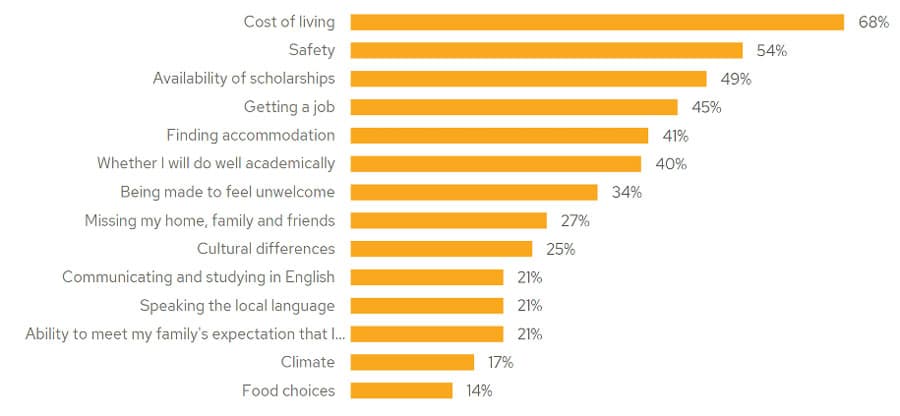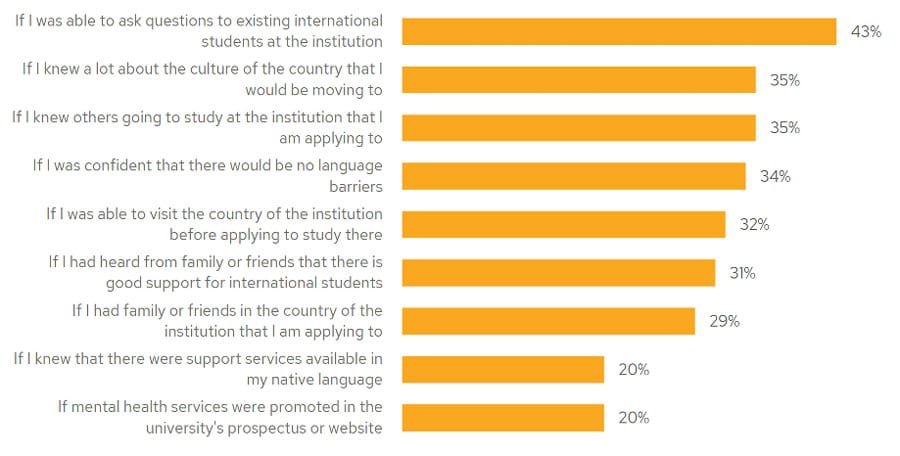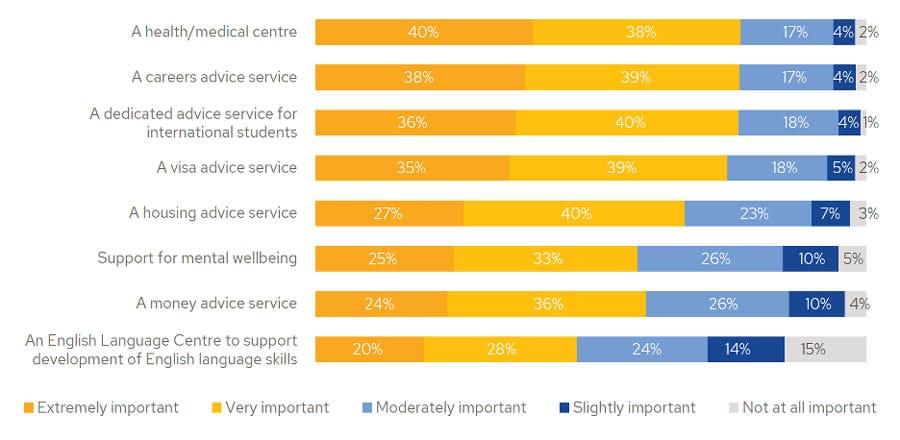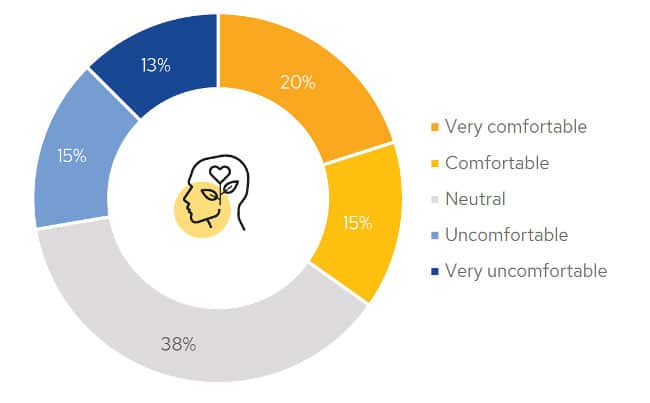Global survey highlights increasing importance of student supports during pandemic
- QS’s International Student Survey finds that prospective students are most worried about money issues and the ability to receive medical care abroad
- Prospects feel that being able to speak to current international students at an institution would reduce their worries
- Many would not feel comfortable asking for supports specific to mental health, suggesting that there are other important ways to alleviate students’ worry load and increase their enjoyment of study abroad
New data from the QS International Student Survey (ISS) suggests that universities that are able to reassure prospective students about their major concerns – especially related to finances and careers – will be in a better position to convert interest into applications and enrolments in 2022.
Responses also indicate that allocating resources to support for students’ mental health is an area that requires serious consideration. A significant proportion – 3 in 10 international students – would not feel comfortable asking for psychological help from their university.
The ISS has been running for nine years and is the world’s largest survey of pre-enrolled international students. The survey report’s introduction notes,
“By partnering with 115 institutions worldwide, the 2021 iteration was our largest ever, featuring the responses of 105,083 prospective students from 191 countries and territories around the world.”
QS combined the results from this year’s ISS with those of their ongoing Coronavirus Student Survey to “understand the views of prospective students with regards to the pandemic and how this could impact admissions this year.”
Nearly two-thirds of the prospective students surveyed were considering postgraduate studies, a third were looking into undergraduate programmes, and 2% were interested in vocational or foundation programmes.
Reducing confusion and providing reassurance are key
Every international student – and prospective international student – has faced uncertainty and concerns unique to studying abroad during the pandemic. Travel restrictions, COVID-related safety rules and anxiety, and financial pressures are just some of the issues that students have had to deal with. The report’s findings indicate that reducing confusion and assuring students that there are strong supports in place for their most important priorities will be central to convincing them to apply and enrol. Delivering on promises made in the pre-enrolment phase is equally key (e.g., having an excellent career centre that current students are happy with).
Worries around practical issues are the most acute
Three findings in particular stand out from the QS survey report:
- 68% of prospective students said the cost of living was their most pressing worry about studying abroad;
- 43% believe it would reduce their worries if they were able to ask questions to current international students at the university;
- 40% said a health/medical centre is extremely important, and 38% consider a careers advice centre.
The high proportion saying that cost of living is a concern for them suggests a potential competitive advantage for institutions in smaller cities and more affordable destinations. Financial concerns also crop up in the high proportions worried about financial aid/scholarships and whether they can find a job while studying (see chart below).

This year has highlighted the importance of leveraging the power of student ambassadors. The ability to speak to current students emerged as the top way (43%) to reduce worries among prospective students (see chart below). As indicated by the high number of respondents who said that they would be reassured by “others going to study at the same institution that I am applying to” (35%), universities would do well to find current students from a particular country who could speak to prospects from their own country – ideally in their own language.
Interestingly, another recent survey by Educations.com found that 63% of prospective students wanted to talk to current international students before applying, compared with only 17% who wanted to talk to alumni. The QS and Educations.com findings suggest that students are looking for the perspective, opinions, and experience of those who are in the midst of studying abroad during the pandemic.

Source: QS Global International Student Survey 2021
As much as countless surveys have revealed that students are suffering more from mental health issues than before the pandemic, the QS survey results highlight the challenges of providing mental health supports to students in distress. For example, in the preceding chart, you’ll note that only 20% wanted to see “mental health services highlighted in the university’s prospectus or website.” In the following chart, only 25% rated “support for mental health” as extremely important, compared with 40% and 38% saying that a “health/medical centre” and a “careers advice service” were extremely important.

Source: QS Global International Student Survey 2021
In addition, more than a quarter of surveyed respondents would feel uncomfortable or very uncomfortable seeking mental health assistance from their university. By contrast, as we have seen, large proportions of prospective students said that they are worried about practical issues around money, accommodation, and medical care. Providing services and supports to alleviate that those practical concerns – e.g., a career centre, academic counsellors, health clinics, help finding jobs – is quite likely an indirect but important way of also fostering mental health on campus, since such services reduce the strain on students and open up room for positive study and social experiences.
This is not to say that universities should not invest in mental health counselling – but rather that being able to help all students with their practical concerns is a surefire way of lessening their worry load and thus the triggers that can contribute to anxiety and depression. Investment into general wellness initiatives (i.e., outside of private counselling) can also be helpful – for example, NAFSA reports that at Syracuse University, students are offered yoga and pet therapy to reduce their stress levels, while at Duke’s International House, there is a range of wellness activities, including mindfulness classes, available to students.

Source: QS Global International Student Survey 2021
As QS notes in their report,
“Now, more than ever, universities need to appreciate the unique circumstances for international students and acknowledge that some have had to experience the pandemic on their own, away from their traditional support structures in their home country. It is vital that when thinking about their support services, they recognise the fact that there is a heightened reticence to willingly seek out help when it comes to their mental health.”
For additional background, please see:
















